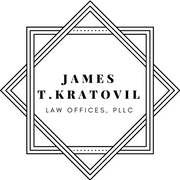
If you don’t have enough money to pay your bills, you don’t have to file for bankruptcy. A temporary lack of money to cover expenses makes you insolvent, which is not the same as being bankrupt. Here’s how the two financial states differ.
Insolvency
Insolvency means the total value of your assets is less than what you owe your creditors immediately. However, being insolvent doesn’t mean your only choice is filing bankruptcy. You might increase your cash flow by taking on work through temporary agencies, asking for money gifts from family or close friends, using a crowdfunding platform, and lowering monthly expenses.
Consider turning a skill, talent, or hobby into a money-making venture. Tutoring, informal teaching or coaching, selling handmade art or crafts on platforms, or driving for a ride-sharing company might help you become solvent again.
Bankruptcy
If you declare bankruptcy, it means you admit insolvency and seek debt relief in federal court. Going bankrupt as an individual or a married couple requires filing a petition in bankruptcy court under Chapter 7 or Chapter 13 of the Federal Bankruptcy Code. Which one you file depends on your financial goals and the types and amounts of assets, debts, and incomes you have.
Chapter 7 provides a quick resolution without paying creditors. You get a fresh start by getting rid of debts, such as medical bills and credit card balances, in four to six months after filing. Under a Chapter 13 bankruptcy, you can keep assets such as real estate or motor vehicles. You make payments under a court-approved plan for three to five years, and the court wipes out any qualified debts that remain.
Whether you need to file bankruptcy or want to find other ways to return to solvency, consult the attorneys at Kratovil Law Offices, PLLC. Based in Charles Town, WV, these lawyers offer more than 35 years of legal experience. As a full-service practice, they provide advice and representation to residents throughout the Eastern Panhandle WV, including bankruptcy, personal injury, wills, and estate law. To schedule a free consultation with a skilled and compassionate lawyer, contact them through their website now or call (304) 728-7718.

About the Business
Have a question? Ask the experts!
Send your question

